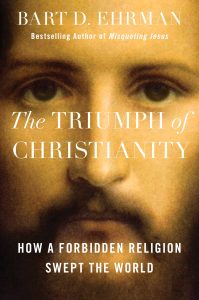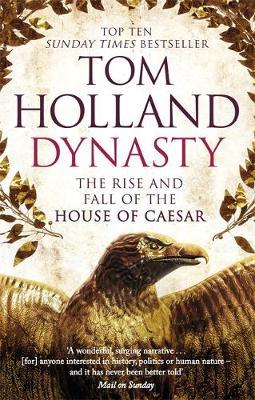Before I address specific points of Daniel Gullotta’s review of Richard Carrier’s On the Historicity of Jesus here is my overall assessment.
Despite having the appearance of a comprehensive review of the primary argument of OHJ (37 pages that includes a detailed background discussion on “who Carrier is” certainly has all the appearance of being comprehensive) Gullotta has failed to convey Carrier’s method of evaluating the evidence for and against the historicity of Jesus.
On the contrary, Gullotta’s discussion of selected arguments in OHJ turns out to be misleading because of what it fails to observe.
For example, although Gullotta criticizes some aspects of Carrier’s analysis of the “James, the brother of the Lord” passage in Galatians 1:19, he fails to point out that in the final analysis that Carrier weights the evidence of that verse in favour of historicity! Carrier is arguing his mythicist case a fortiori so that although he personally argues for broad contextual and stylistic reasons that that the appellation does not supports the historicity of Jesus, he acknowledges the historical Jesus viewpoint and weights that phrase as being 100% what would be expected if Jesus were indeed historical.
That is, Carrier concedes in the final weighting of the evidence that Galatians 1:19 favours the case for the historical Jesus.
So how can Carrier still argue mythicism?
The answer to that question is unfortunately where Gullotta’s review fails its readers.
All Bayesian analysis does is provide a symbolic mnemonic to help one (1) be sure nothing is overlooked in assessing all the available evidence that relates to a particular historical question and (2) keep in mind the need to carefully evaluate each piece of that evidence. It serves as a mnemonic to help one guard against tunnel-vision solutions or what I call simplistic “proof-texting” in historical inquiry.
I recently quoted the historian G.R. Elton’s warning about the nature of responsible historical inquiry:
Historical research does not consist, as beginners in particular often suppose, in the pursuit of some particular evidence that will answer a particular question (G.R. Elton, The Practice of History, p.88)
If that’s what historical research is not, Elton goes on to explain what it is:
it consists of an exhaustive, and exhausting, review of everything that may conceivably be germane to a given investigation. Properly observed, this principle provides a manifest and efficient safeguard against the dangers of personal selection of evidence. (p.88)
Bayesian formula represent what we know of relevant background information and all the contextual factors, for and against, relating to a particular hypothesis. They are nothing but a set of tools to help lead us away from the pitfalls of “confirmation bias” and otherwise failing to give due weight to how the evidence stacks up both for and against one’s hypothesis.
On the Historicity of Jesus is not just another series of arguments for the mythicist Jesus. It is an attempt to set out all of the evidence both for and against the hypothesis and to find a way to validly weight the many variables before coming to a tentative and probabilistic conclusion.
Leave the proof-texting level of argument to the apologists. A professional historical inquiry follows Elton’s advice. There is indeed some evidence that even an “anti-mythicist” recognizes as problematic for the simplistic proof-texting use of Galatians 1:19 to settle the question. (See my post on A.D. Howell Smith’s discussion from his book Jesus Not a Myth.)
Perhaps Carrier has worked “too hard” to be “too comprehensive” in OHJ and by adding too much of his own arguments for or against particular interpretations of certain passages in the New Testament epistles he has exposed himself to criticisms that in fact deflect from the main argument. Some of his “newer”(?) interpretations might have been better tested (and potentially refined over the long term) by being published in journals prior to their appearing “raw” in the book.
I also have my disagreements with several of Carrier’s arguments and interpretations. (I have posted some of those on this blog.) At the same time, any criticism of Carrier’s overall thesis, in order to be valid, does need to do more than argue against any of those specific arguments.
A critical review of Carrier’s work needs to acknowledge the a fortiori approach of Carrier’s method (giving as much weight as reasonably possible to the historical Jesus case — even to granting Galatians 1:19 is exactly consistent with the historical Jesus case!) and to address the totality of the evidence and background information that needs to be brought to the table in a historical investigation that would rise to the standards of a G.R. Elton.
Like this:
Like Loading...









